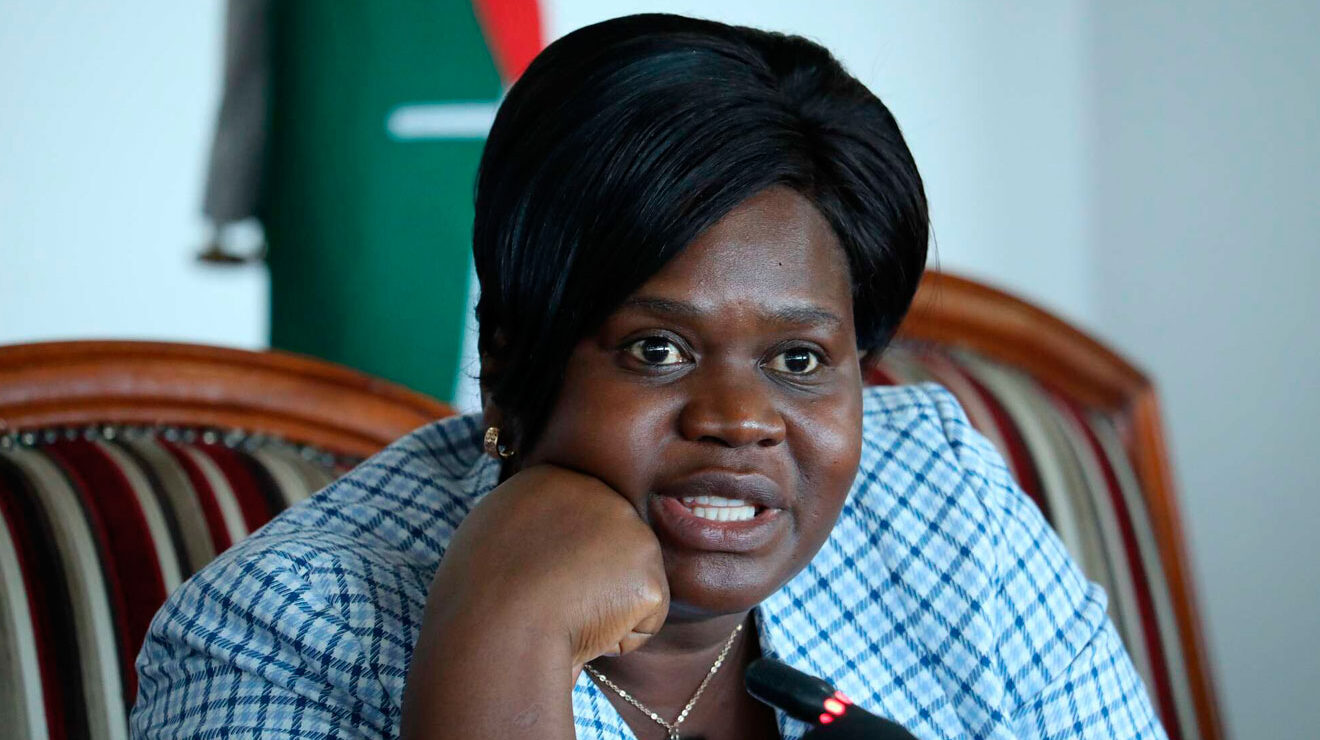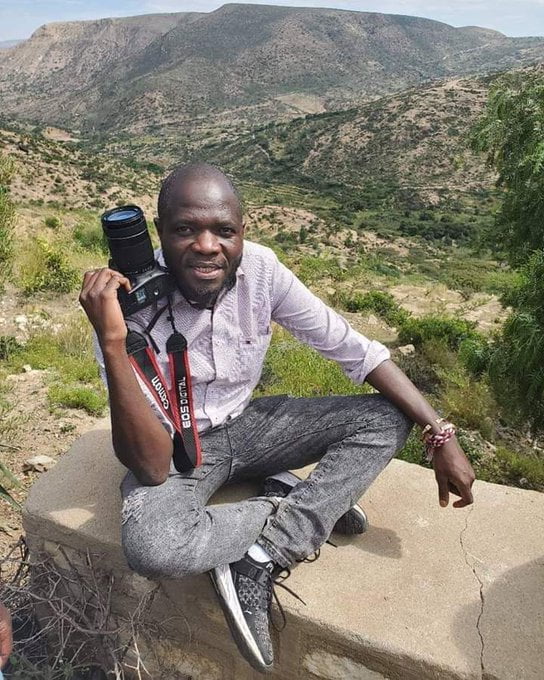In a deeply emotional and symbolic gesture, the County Government of Homa Bay has completed the construction of a brand-new two-bedroom house for the parents of Albert Ojwang, just a day before his burial.
Albert, who died under mysterious circumstances while in police custody in June, had always dreamt of building a modern home for his aging parents.
Though he is no longer alive to witness the transformation, his dream now stands tall in Kabondo Kasipul—a bittersweet tribute to a life cut short by tragedy.

Albert Ojwang Parents’ House Completed in Just Two Weeks
The modest yet elegant house, built next to Mzee Meshack Ojwang’s old semi-permanent home, features a warm beige and white exterior. A small staircase at the front leads into a wide sitting room, painted in light cream and filled with cosy furniture and bright, colourful curtains.
Governor Gladys Wanga officially handed over the house on Thursday, just hours before Albert’s body arrived for burial. She said the house was more than just a structure—it was Albert’s final wish, now fulfilled.
“Today, as we receive Albert’s body home, his dream to build his parents a new house is fulfilled, albeit in his absence. May justice prevail,” she stated firmly.
The house includes:
- A spacious sitting room
- Two bedrooms
- A bathroom and toilet
- A kitchen with a backdoor
It will now serve as the permanent home for Albert’s parents, Meshack and his wife, who had previously lived in a rundown semi-permanent structure. The contrast between the old and the new is stark—a reminder of what Albert had long envisioned but was taken too soon to see.
Wanga Turns Grief Into PR Stunt with Bold Support for Ojwang Family
Governor Wanga first visited the Ojwang family on June 16 to offer condolences after Albert’s death, which occurred after his arrest by DCI officers. Public anger followed, with many demanding a thorough investigation into what appeared to be a case of police brutality.
During that visit, Wanga made a public commitment: to build a house for Albert’s grieving parents within two weeks. She kept her word.
The project moved quickly. A team of builders started construction on the family’s land in Kokwanyo village almost immediately. Day and night, work continued under tight supervision to meet the deadline. True to promise, the house was completed on time—standing ready for occupation just before the funeral.
Wanga also handed over Ksh2 million, a cash donation from President William Ruto, to support the family. But she didn’t stop there. She pledged to rally allies and well-wishers to buy a plot in Homa Bay town, where rental units could be constructed for the Ojwang family to earn sustainable income in the future.
Her message was clear: support must go beyond condolences. It must translate into real, tangible change.
Beyond the House Lies a Bigger Demand for Justice
While the new home brought comfort, it couldn’t erase the grief or the questions surrounding Albert Ojwang’s death. His case has stirred public outrage and renewed calls for police accountability.
Governor Wanga echoed these calls during the handover of the house. “We appreciate the work done here, but let no one think this is the end. Albert died under unclear circumstances. We want answers. We want justice,” she said.
The Kenya Human Rights Commission and other civil society groups have taken up the case, calling for independent investigations. There are growing demands that the officers involved be suspended and the DCI explain why Albert was arrested in the first place.
His story has become a rallying point—not only for reforms in the police force but also for how the state treats victims of police violence. A new house may fulfill a dream, but the fight for justice has just begun.
Ojwang’s Legacy Lives On Through a Home and a Movement
The completion of the Albert Ojwang Parents’ House is not just a construction success—it’s a symbol of community, political will, and the power of standing up for the voiceless.
While Albert did not live to see his parents enjoy the comfort he had always wanted to give them, his legacy now lives on in the walls of the new home, in the hearts of his parents, and in the demands for truth that continue to echo across Homa Bay and the country.
This house, built in two weeks, stands as a monument of both love and loss. It reflects the strength of a grieving community and the responsibility of leaders to respond not just with words, but with action.











































